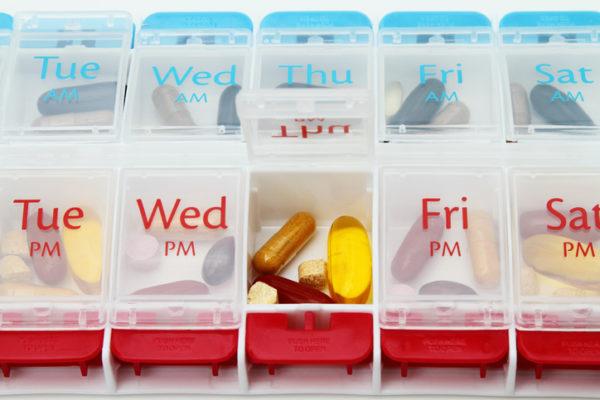
How to Manage (and Reverse) Heart Disease
Being diagnosed with a form of heart disease, such as coronary artery disease or arrhythmia, can stir up many questions. The good news is that it’s possible to prevent, manage and even reverse heart disease by introducing lifestyle changes and medication to your routine.
Some people, due to a variety of risk factors, are predisposed to developing heart disease. To ensure you continue living your life to the fullest, speak with your doctor about your medical and family history so you know your risk. Certain factors may increase your chances of a heart disease diagnosis, including:
- Existing health conditions, such as high cholesterol, high blood pressure, diabetes and obesity
- Heart disease that runs in the family
- Older age
- Recent or longtime history of smoking
Living with heart disease involves a balance of actively improving your healthy routines and sticking to a medication regimen as prescribed by your doctor.
Lifestyle Changes for a Healthy Heart
Balancing exercise with healthy eating, along with other changes, may help reverse a heart disease diagnosis. Researchers at the Institute for Exercise and Environmental Medicine found starting a regimen of varying-intensity exercise by late-middle age can reverse existing damage and help to prevent future disease.
You can also contribute to your well-being and improve your chances of reversing heart disease with a variety of other lifestyle changes:
- Keep up with your routine care and provider visits. Staying in touch with your doctor or physician team helps them to track changes in your heart health, numbers and vital signs.
- Drink responsibly. Limit alcohol consumption to one glass a day for women and up to two glasses a day for men.
- Eat a healthy diet. Fill your plate with foods high in omega 3 fatty acids and fiber that can help lower cholesterol. Avoid high sodium and simple carbohydrates.
- Prioritize your mental health. Stress can be a contributing factor to spikes in blood pressure and other cardiovascular issues.
- Sleep soundly. Six to 8 hours of sleep per night helps your body reset at the end of the day.
- Quit smoking.
Medication
If you have any questions, concerns or doubts about medications, contact your primary care provider or cardiologist before taking them.
- Establish up a stringent routine for taking any prescribed medications. Set alarms on your phone or use a medication container so you can sort medications and avoid mistakes.
- Ask your spouse or a loved one to keep you in check so you don’t forget to take something you’re supposed to.
- Mark medications that aren’t safe for you to consume so you don’t take them by mistake. Other family members may continue to take these, but you’ll want to be sure you don’t.
Avoid These Medications
If you’ve been diagnosed with heart disease failure, you may be advised to not take medicines that speed up your heart rate, increase your blood pressure or contain sodium—unless your healthcare provider has specifically instructed you to do so.
Avoid these over-the-counter (OTC) medications:
- Medications that contain sodium, such as antacids or laxatives
- Medications that contain pseudoephedrine or phenylephrine, such as Sudafed, Contrex or Nyquil
- Medications or herbs containing oxymetazoline, which include nasal sprays like Afrin and Dristan
- Nonsteroidal anti-inflammatory drugs (NSAIDs), such as ibuprofen (Advil, Motrin) and Naproxen (Aleve)
- Protein shakes or supplements containing ephedrine, such as ma huang or Herbalife
Proceed With Caution (& Provider Direction)
When being prescribed any of these medications, make sure you discuss the benefits and side effects with your primary care provider or cardiologist first:

- Calcium channel blockers. Commonly prescribed for many different heart-related diseases, these medications reduce the heart’s workload by interrupting the movement of calcium to the heart, which relaxes blood vessels and increases blood and oxygen supply to the heart.
- Antiarrhythmic medications. Used for treating abnormal heart rhythms, these medications can cause some side effects such as fatigue and lightheadedness, so make sure to discuss your options with your cardiologist.
- Combination medications. Some medications, particularly cold medications, may contain ingredients that aren’t safe for patients with heart disease. Be on the lookout, specifically, for medications that contain unsafe ingredients like NSAIDs.
It may seem overwhelming to realize that some medications—including those you’ve depended on for years—may now cause problems because of your heart failure. But don’t worry; you still have plenty of options. Talk to your pharmacist and your cardiologist about cold remedies, antacids and laxatives that are safe. In many cases, acetaminophen, like Tylenol, can be safely taken. Your healthcare team can help you understand what’s right for you and help you find a safe and accurate dose.
Options to Consider
If you have any questions or concerns about managing your heart disease, making lifestyle changes to improve your condition or safely taking medication while living with heart disease, connect with your primary care provider or cardiologist. You can use MyChart to send them messages and get quick answers to ease your mind.
Take control of your heart health today. Schedule an appointment with your primary care provider or cardiologist to discuss lifestyle changes and a heart-healthy care plan that works for you.







